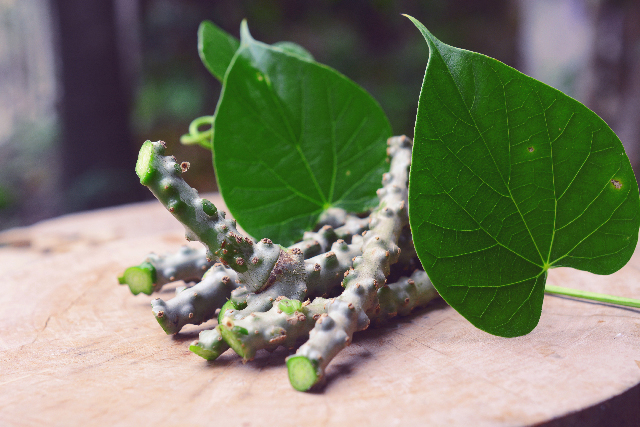Researchers find a non-toxic, green alternative for synthetic antioxidants in biodiesel production
01/02/2019 / By Edsel Cook

The heart-leaved moonseed (Tinospora cordifolia) has long been used as a medicinal plant in Ayurvedic medicine. Its healing properties are partly attributed to its high concentration of phenolic compounds. Indian researchers reported that these same natural antioxidants make moonseed a potential fuel additive that can improve the performance of biodiesels.
Biodiesels are diesel-type alternative fuels produced from organic sources such as plant oils or animal fats. They are considered to be sustainable sources of energy and are used in increasing numbers.
In India, the Karanja tree (Pongamia glabra) is commonly used to produce biofuels. Also called the Pongam oil-tree and Indian beech, its seed oil is inedible and rich in fatty acids.
Assays showed that close to 69 percent of the oil is made up of unsaturated fats. This makes Karanja seed oil a good raw material for conversion into biodiesel. (Related: Scientists explore using sugarcane as alternative bio-jet fuel.)
Karanja biodiesel fails to meet oxidation induction standards
Oxidative stability is the ability of a substance to stay stable even as it is being burned. A biofuel with good oxidative stability burns cleanly, leading to improved engine performance and cleaner emissions. On the other hand, a biodiesel with bad oxidative stability will clog up the engine and produce more air pollution.
There are a number of standards that cover biodiesels. The ASTM D6751 standard covers biodiesel fuel blend stock for middle distillate fuels. It requires a fuel to last for at least three hours of oxidation induction.
Meanwhile, the EN 14214 standard was established by the European Committee for Standardization. It covers the widely-used FAME biodiesel type and calls for an oxidation induction period of six hours.
However, Karanja biodiesel can only achieve an oxidation induction period of 2.49 hours. It is not eligible under either biofuel standard.
Searching for a natural fuel additive in heart-leaved moonseed
The oxidative stability of a fuel can be improved through fuel additives. These chemicals increase the stability of the fuel in high heat conditions.
Most fuel additives are derived from fossil fuels, which are growing more expensive, dwindling in number, and cause pollution. There is a need to find a cheaper, cleaner, and sustainable replacement for these petroleum-based chemicals.
Researchers from the Central University of Jharkhand (CUJ) considered utilizing the heart-leaved moonseed as a possible alternative source of fuel additives. The moonseed contains numerous natural antioxidants that work on unsaturated fats like those found in Karanja oil and its biodiesel derivative.
Moonseed stem extract improves oxidative stability of Karanja biodiesel
The researchers processed the stems of the moonseed to create an extract. They optimized the method using the Box-Benken designing approach, taking care of selecting the composition of the solvent, as well as setting the time and temperature of the extraction process.
Phenolic assays showed that the stem extract contained high levels of phenols. These plant-based substances are excellent antioxidants that can scavenge free radicals.
When added to the Karanja biodiesel, the moonseed extract proved to be adequately soluble. The researchers added different loads of the fuel additive to determine the best ratio.
In oxidation induction tests, biodiesel with the natural fuel additive maintained its stability for longer periods of time than the untreated biofuel. A load of 100 parts per million (ppm) of moonseed stem extract allowed the biofuel to pass the three-hour ASTM D6751 standard.
As for the EN 14214 standard, a load of 600 ppm allowed the Karanja biodiesel to achieve six hours of oxidation induction time.
The CUJ researchers concluded that the stem extract of the heart-leaved moonseed could serve as a clean, natural, and sustainable alternative to synthetic fuel additives for biodiesels.
If you are interested in the medicinal use of heart-leaved moonseed antioxidants, you can visit NaturalMedicine.news.
Sources include:
Tagged Under: additives, antioxidants, biodiesel, biofuels, chemical oxidation, Ecology, heart-leaved moonseed, natural antioxidants, oxidation



















